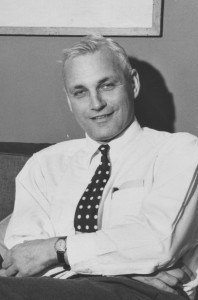"Post-revolutionary society" is a book published in 1980. It contains essays by Paul M Sweezy, written during the period 1968 to 1980. Sweezy was a prominent American Marxist economist and theoretician. Most of the essays were originally published in Sweezy's own journal, Monthly Review.
Sweezy begins by explaining his disillusionment with the Soviet Union. Although the Soviet Communist regime developed the productive forces to a stunningly high degree (Sweezy believes that some branches of the Soviet economy are better than their American equivalents), the Soviet Union is not appreciably closer to real socialism. Rather, the Soviet system is characterized by a widespread depolitization, careerism, consumerism and the dominance of a privileged bureaucracy. The working class is not really in command. Isaac Deutscher's hopes for a peaceful democratization after the death of Stalin have also been dashed.
Sweezy's alternative to the Soviet failure turns out to be Mao's China, although his interpretations of Maoism are perhaps his own. He is worried that post-Mao China, too, will end up like the Soviet Union.
On some points, Sweezy sounds like a rather typical Maoist. Politics should be in command, periodic cultural revolutions are necessary, everyone's standard of living should be the same, consumerism is bad, etc. On other points, however, the author sounds more idiosyncratic. He tries to make a connection between Mao's politics and the New Economic Policy (NEP) in the Soviet Union (1921-28). This sounds frankly absurd since Mao is better seen as a ultraleftist adventurist, but there you go!
To Sweezy, the NEP was first and foremost a form of peasant orientation, something necessary in a peasant-majority nation like Russia (and, obviously, China). He points out that Lenin called for the establishment of voluntary peasant cooperatives on a massive scale as a kind of alternate route to socialism. Unfortunately, this was never implemented. Sweezy regards the Chinese people's communes as the voluntary co-ops Lenin wanted! The goal is to expand industry together with agriculture, and only to the extent agriculture permits.
Sweezy was originally positive to French Marxist Charles Bettelheim's analysis of Soviet history. Bettelheim regarded the Soviet social formation as a form of capitalism, with a "state bourgeoisie" as the ruling class. This class was actually a leftover from the old system, comprising its administrative apparatus, which the Bolsheviks for various reasons were forced to take over. The old Russian state bureaucracy was completely imbued with a "capitalist" mentality and became strong already under Lenin.
In later essays, Sweezy changes his perspective. Now, he says that the Soviet Union is an entirely new form of class society. Its ruling class has emerged *through conditions created by the revolution itself*. He never uses the term "bureaucratic collectivism", but that's clearly what he means. Nor is it clear whether the new class society is better nor worse than capitalism = hardly a minor point for Marxists. Sweezy regards full employment as a positive gain for the working class, and says that this commends the new system to the poor Third World masses. However, I get the impression that he really sees the system as ultimately reactionary, since it blocks a real socialist development.
Indeed, Sweezy is very pessimistic. There is no real socialism anywhere in the world, and seemingly no prospect making it happen. All new revolutions will be bureaucratic in nature. The once expansive Soviet system is stagnating, being forced to import capital from the West (which isn't in very good shape either). Worst of all, Marxist theory itself is in crisis and badly in need of a Kuhnian paradigm shift.
While Sweezy does sound honest enough (although slightly deluded by the towering presence of Chairman Mao), I think it's obvious what the real solution to the theoretical problem is. The Soviet Union and China really were socialist. The bureaucratic post-revolutionary society described by Paul M Sweezy is *really existing* socialism. No other form is possible, except as a very long shot.
That is the real secret of the post-revolutionary society.

Det finns underligt nog ingen koppling mellan ovanstående och diskussionen om Kina på förra tråden. Jag läste Sweezy av en slump samtidigt som Erik skrev om Kina och NEP på annan blogg.
ReplyDeleteHar förresten fortfarande inte fått teckenstorleken att funka ordentligt när jag skriver via mobil...
ReplyDeletehttp://kiremaj70.blogspot.com/2020/10/xi-jinpings-kina-ar-anda-inte-bucharins.html
ReplyDelete1919 ska det ju vara. Inte 1921.
ReplyDeleteJag uppfattar också Sovjet under NEP som en så att säga "riktig" vänsterregim, medan Kina idag snarast verkar vara en nationalistisk regim som rent ekonomiskt har vissa unika drag. Möjligen kan man betrakta dem som ett slags "stalinister" i väldigt bred mening.
ReplyDeleteHar förresten recenserat några böcker om Bucharin-tiden och sena Lenin-tiden. Kan inte länka från mobilen men använd sökmotorn för att hitta "The Affirmative Action Empire", "Communism and the Dilemma of National Liberation" och "Muslim National Communism in the Soviet Union" på denna blogg.
ReplyDelete